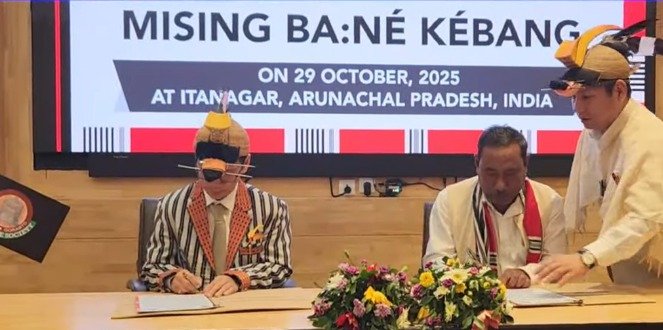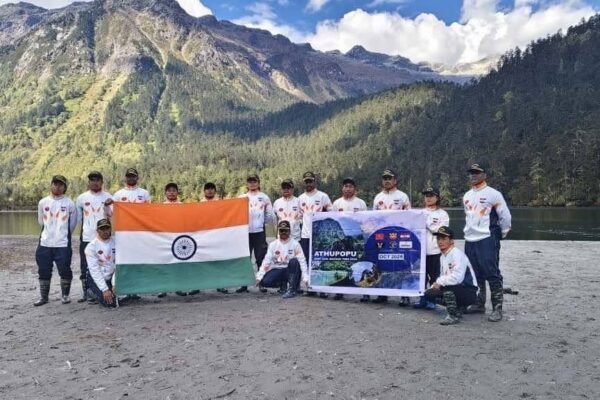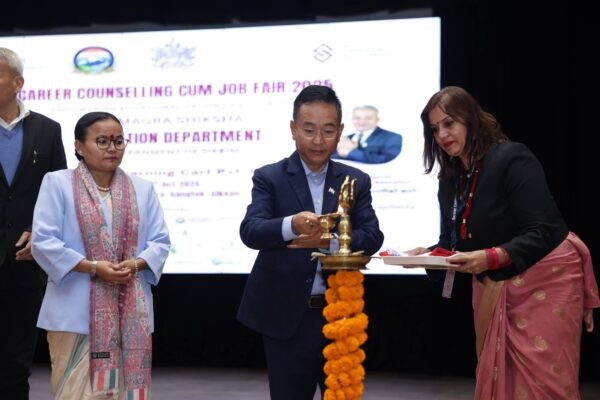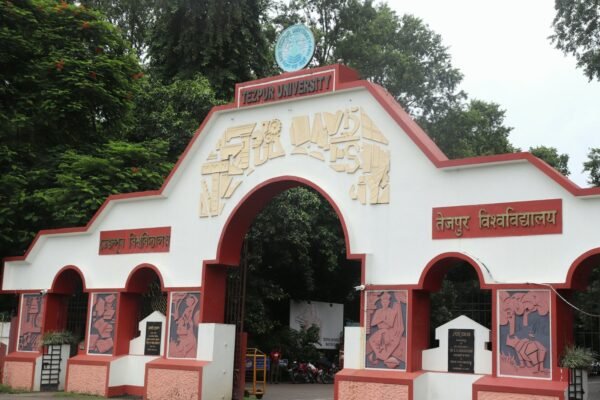Itanagar, Oct 29: The Nyishi community of Arunachal Pradesh and the Mising community of Assam on Wednesday signed a historic ‘Treaty of Friendship’. The agreement, formalised between the Nyishi Elite Society (NES) and the Mising Ba:Ne Kebang (MBK), is being hailed as a milestone in cultural diplomacy within Northeast India.
The treaty acknowledges the deep-rooted kinship between the two communities through their common ancestral lineage of Abo Tani and seeks to preserve this bond for future generations. Leaders from both sides emphasised that the relationship, anchored in history and cultural homogeneity, must continue to guide contemporary engagement.
The document outlines 11 key articles of cooperation, including mutual recognition and respect, preservation of shared heritage, strengthening bilateral relations, advancing people-to-people contact, ensuring dignity in social and economic matters, and encouraging cultural collaboration. It also provides for the creation of a standing coordination committee to resolve disputes through democratic and conciliatory means.
According to the provisions, the treaty comes into effect immediately and will remain valid for 15 years, until October 29, 2040. Either community may withdraw from the pact with six months’ prior notice if necessary.
The agreement was signed on behalf of the Nyishi community by NES president Prof. Tana Showren, general secretary Heri Maring, All Nyishi Youth Association president Jamru Ruja and All Nyishi Students’ Union president Lizen Gyadi. Representing the Mising community, the signatories included MBK president Paramananda Chayengia, general secretary Indra Kumar Chungrang, Mising Mimang Kebang president Sunil Kumar Pegu, Takam Mising Porin Kebang president Tilok Doley and Takam Mising Mime Kebang president Indra Chintey Kumbang.
Community leaders described the pact as a reaffirmation of ancestral ties and a framework for future cooperation in politics, economics, commerce, social issues and culture. Observers noted that the treaty not only strengthens cultural identity but also sets a precedent for peaceful collaboration and mutual respect among indigenous groups of the region.









